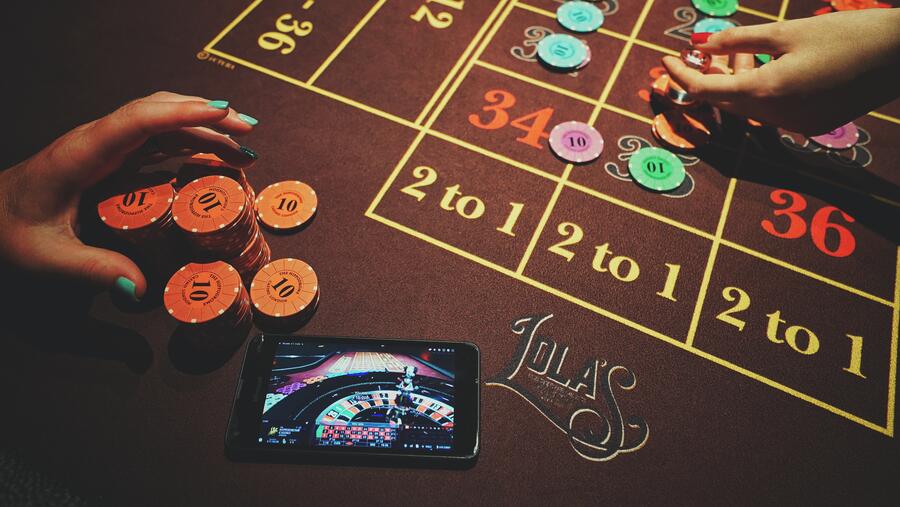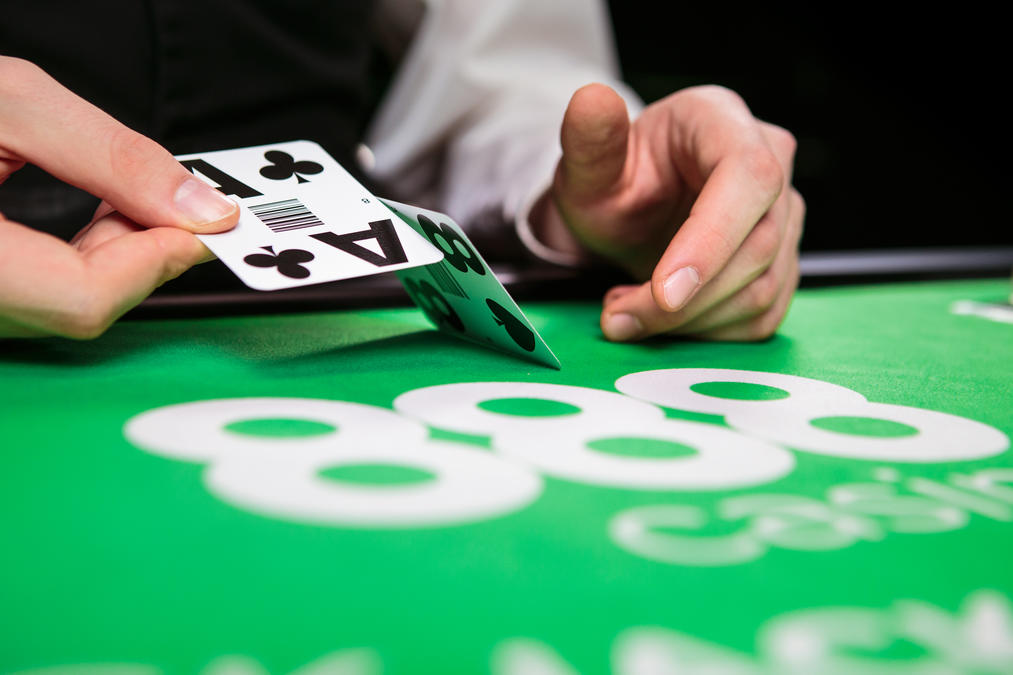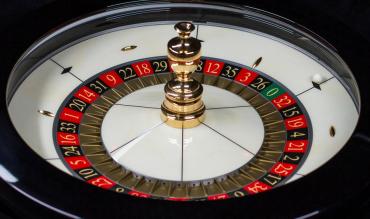Today I am going to tackle some casino gaming questions that are frequently asked of me. This will be a multi-part article.
I will discuss some of the history of the games, how to properly play the games, which games the players might be able to get an edge at. I will cover the basic and most popular games to be found in today’s casinos and online. Usually, the online casino strategies are the same as the in-house strategies.
ROULETTE (meaning “little wheel”)
QUESTION: Ever since I started going to casinos, I have found that roulette has a steady and large number of people who like to play it. Can you explain the fascination that some players, actually many players, have with the game? I mean it is just a ball spinning around a wheel after all.
ANSWER: Don’t frown on roulette players as roulette could be the oldest of the casino games. It was developed by mathematician and philosopher Blaise Pascal, in the 1600s, perhaps while he was looking for a perpetual-motion machine – which no one has ever developed.
The game became a favorite of the aristocrats of those times (which cost many of them dearly) and right up until the present day roulette has hundreds of thousands of fans – no, make that millions of fans.
QUESTION: I don’t get this idea about the wheel. What is the big deal about a wheel? Why would that attract a player to the game?
ANSWER: Ah, remember the “music of the spheres?” I guess not. The wheel was considered the ultimate structure, no beginning, no end. It was often thought of as a symbol for the ultimate reality of the universe.
Today’s flat-earth believers deny the power of the circle or wheel or sphere but they are in a distinct minority – if they even have a couple of thousand adherents during our present day.
Pascal thought the wheel could be used to gain energy without ever failing; in short, eternal energy. He was wrong but that thought led him to discover a way to create a gambling game which has, over the centuries, brought an amazing amount of money for the casinos that offered the game. Casinos might call roulette the “never-ending” money-wheel to their vaults! The eternal money machines.
You will note as you study the history of thought that wheels play a big part in our philosophies of life and existence. We even speak of the wheel of life. Perhaps, our fascination with roulette can be traced to these philosophical origins.
QUESTION: I know there are a lot of bets at the game but can any of them actually be beaten by a player?
ANSWER: Well, you can bet directly on a number or many numbers individually. The payoff for a single number hitting is 35-to-1. You can spread your money out on those bets individually or you can bet categories of numbers. One bet can cover many numbers. There are even single bets that can cover 18 of the 37 or 38 numbers. There are bets called dozens and columns,m n and bets called even-money bets that pay even money if hit.

QUESTION: Are there different types of roulette games? You just said 37 or 38 numbers? What’s that?
ANSWER: There are two basic roulette games found in today’s casinos. The American game that has 38 numbers, 1 through 36 and a 0 and a 00. The other is the European or French game which has 37 numbers, 1 through 36 and one 0. The payouts at both games are the same, 35-to-one on an individual hit.
If the games have the same minimums, then the European game is the superior one with a house edge of 2.7% while the American game has a house edge of 5.2%. However, if both games are offered in a casino, the European game will usually have higher minimum bets to make up for the better house edge.
QUESTION: Can you answer whether there is a way to beat the game? I mean to get a real edge?
ANSWER: In the past there were roulette wheels that were “off.” That is, certain pockets seemed to come up more than other pockets. A player would have to record and analyze the wheel to find these pockets but this could be done – in the past that is. Some players won fortunes in Monte Carlo and in Vegas by finding such wheels. These were sometimes called “unbalanced or biased wheels.”
QUESTION: And today?
ANSWER: Today? No such luck for the players I’m afraid. Today’s wheels are almost perfect. They are checked constantly. They are computer controlled. It would be really, really a long shot to discover a biased wheel in a modern casino. It might happen, maybe, but it would be so rare the chances it would be you at the game is as remote as learning how to fly without a plane, balloon or other device.
[Please note: My wife the Beautiful AP and I did discover a biased wheel in the early 1990s in Las Vegas. It was a find, like a gold mine for a prospector. We never saw anything like this again.]
There has been questioning recently, I mean in the last 50 years, about whether some dealers could control their spin of the ball to land on certain groups of numbers. This is highly doubtful but who knows? Maybe there are, or were, dealers who could do this feat. I don’t know. The dealers I’ve asked highly doubt this ever really occurred.
QUESTION: So how would you play the game then?
ANSWER: How you play is mostly a matter of temperament. If you go up on one number then you have 37 ways to lose (or 36 ways to lose) so you could be in for a long losing streak. If you hit early that’s great. If not, it will be something of a slog.
I prefer betting some of the proposition bets where you can bet much less but have a better chance of your bet winning.
My favorite bets are the even-money bets of red/black, high/low or odd/even. These pay 1-for-1 but you probably won’t have massive losing streaks.
The house edge on all the bets remains the same no matter what you wager but how that money is won and lost, the pattern of wins and losses, changes the nature of the contest.
The even-money bets also have an interesting twist to them in some select casinos. If the 0 or 00 shows up, those bets only lose one half their worth. That brings the house edge down to 2.63% on the American game and 1.35% on the European game. Now that is some benefit!
BLACKJACK (Slang: monkey for monarchy, which are picture cards)
QUESTION: When and why did blackjack become the number-one table game?
ANSWER: Craps was the number-one table game from World War II through the early 1960s, then something startling happened. Edward O. Thorp wrote his now-famous book in 1962 about blackjack titled Beat the Dealer: A Winning Strategy for the Game of Twenty-One which introduced the public to a method for actually getting a real mathematical edge at the game of blackjack.
Thorp’s book was a slow explosion over about a two-year period that brought many casino players, those craps players, poker players, roulette players and non-casino players, to the casinos to try their hand at beating the house. Many came, yes, but not too many conquered as Thorp’s counting system was somewhat difficult to execute.
That didn’t matter. The game of blackjack exploded with eager players. And management took notice and panicked, fearing that savvy players would drain the casino of their funds; funds they won from craps, roulette and slot machines.
The casinos ushered in multiple-deck games and changed the rules to make the game harder to beat. Even today the casinos are lowering the quality of the blackjack games for the players due to the casinos’ need to make money as casino gaming has become a multi-billion-dollar industry.
Slowly, more counting systems were developed; much easier counting systems that dedicated players could learn with some effort and discipline. I have written three books on blackjack, each with examinations of relatively easy counting systems that can beat the house. But – and this is an important “but” – today’s games are scrutinized carefully because the house still fears the few card counters that are actually competent at beating the game. The higher a player bets, the more the casino will scrutinize that player.
Are there many card counters out there that can beat the house? Not really. Card counters are more like insects splattered on the windshields of speeding cars. More try it than can do it.
QUESTION: What does It take to really give the casino a run for its money at blackjack?
ANSWER: The expert blackjack player must know the basic strategy which is the computer-derived play of every player’s hand against every dealer’s up-card and know some variations of play based on the count of the cards at any given time.
There are different basic strategies for the different blackjack games but most of these only influence the edge a player gets by a few tenths (of tenths) of a percent or so. Still, most card counters look for any edge here and there that they can get.
Next the expert player must decide which card-counting system they wish to use. Very few counters use Thorp’s system as there are stronger systems that have been developed.
And to make a long story a little shorter; craps left the limelight, as did roulette, and blackjack took their places.

QUESTION: Is there a strategy for non-card counters to give players a decent game against blackjack?
ANSWER: Yes. Basic blackjack strategies that card counters use are also the best playing strategies for the play of one’s hands against the dealer’s up-card. These are strong strategies that can keep the house edge at around one-half percent, which means an expected loss of 50 cents for every $100 wagered. That is a very, very low house edge.
The only caution is that some dealers like to deal fast so playing blackjack at crowded tables is the best strategy for the average blackjack player. The fewer decisions, the better it is for the player. For card counters, by the way, the more decisions the better since the counter has an edge.
Use the following as your words of wisdom: If you have the edge, you want more decisions. If the casino has the edge, you want fewer decisions.
QUESTION: Do all blackjack players play the basic strategies for the game?
ANSWER: Sadly, no. Too many blackjack players play their own “logical” strategies, which are wrong as they are based on an incorrect understanding of the game.
QUESTION: Can you give us an example or two of these?
ANSWER: Players are supposed to split 8:8 at all times. Now, 16 is a losing hand and splitting the 8s seems like a stupid thing to do, especially against a dealer’s 10 face-up card. The rub is that when you split those 8:8 hands the player will lose less money overall than just standing or hitting the 8:8. This may not seem “logical” but splitting is the right move.
Another hand is a player having a blackjack and the dealer shows an ace as his or her up-card.
The logical thing, according to players whose logic is wrong, is to insure the blackjack and win even-money, no matter what the dealer has as his or her hole card. It’s a guaranteed win. It’s a guaranteed win because the dealer will usually not have a blackjack and because all those other non-blackjack hands will not bring the player with a blackjack a 3-to-2 payoff. That player merely gets a 1-to-1 payoff on all the dealer’s hands.
In short, insuring a blackjack against the dealer’s ace costs the player money and increases the house edge over the player. Here superficial logic again fails.
Most blackjack players who only use their own logic or the logic of supposedly expert writers are asking for trouble. And they get trouble by losing more money than they otherwise would lose.
You can’t use poor logic to combat the real math of the game. I wish everyone knew that.
All the best in and out of the casinos!


